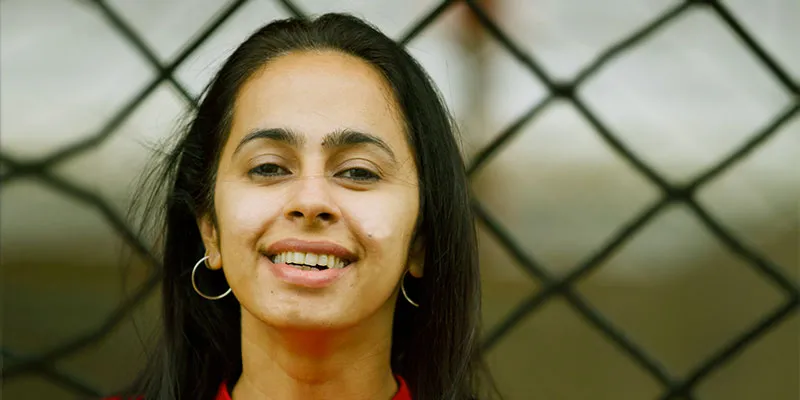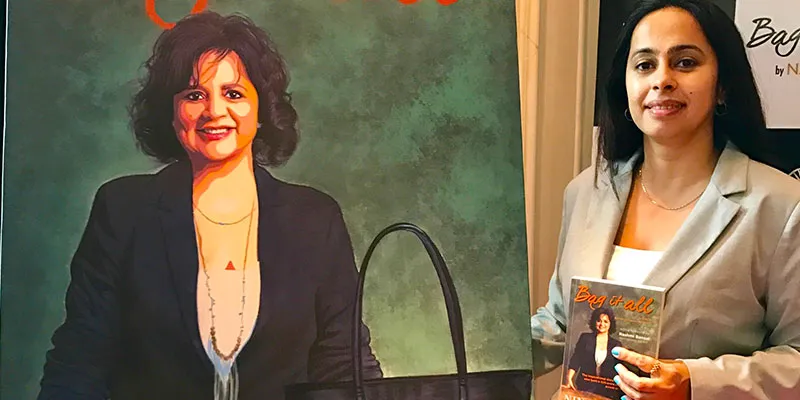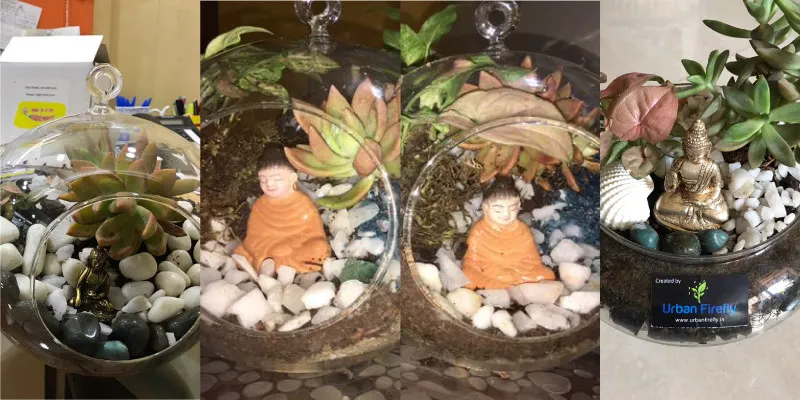Author Suman Chhabria Addepalli ‘Bags it All’ with her startup Urban Firefly
How author and entrepreneur Suman Chhabria Addepalli dons multiple hats and stays on top of things.
Over a few calls—as I sit in Bengaluru and she in Mumbai—we discuss the many loves of her life. With the two distinct roles she embraces, Suman Chhabria Addepalli’s energy and passion are palpable.
A true-blue Mumbaikar who flits between entrepreneurship and writing with equal ease, Suman believes,
Writing is hands-on, entrepreneurship is directionally hands-on. Both require immense discipline, which fortunately is part of my DNA.
It was in the course of writing her latest, Bag it All, that Suman turned her urban gardening hobby into a successful business. Urban Firefly, a one-stop shop for gardening solutions, was launched last July.

The author speaks
In Bag it All, the 41-year-old chronicles the journey of Nina Lekhi’s made-in-India brand. “The book has many practical, doable, and guaranteed lessons on entrepreneurship and the fire in Nina’s story can light an entrepreneurial spark within anyone. It truly is a unique Indian-woman-CEO success story,” says Suman.
As an ardent Baggit fan, Suman was happy to write the book when approached by her close friend, celebrated author Rashmi Bansal, and used the opportunity to uncover not only the visible success stories of Indian businesses but the mis-steps, the dilemmas, and the doubts entrepreneurs face during their journeys.
“I feel many Indian entrepreneurs are too modest, shy, and unwilling to reveal their stories, and more so, the details of their mistakes and failures. It was heartening that, from the very beginning, Nina was willing to share a lot of details about her personal and professional journey. She also revealed how, for many years, she stumbled along, experimenting with different formats and products before she figured out what she wanted to manufacture.”
Listening to Nina talk about her brand made Suman want to do more than just pen down the journey—she was inspired enough to commercialise a hobby into a business.

The love for gardening
With Suman and her mother using every possible surface to grow plants, her childhood home abounded with greenery. “The fact that our windows let in not more than a sliver of sunlight did not deter my mother (whom I take after) or me.
However, the plants hardly did well; the hibiscus, rose, mogras almost never flowered. Others who grew plants in pots complained of the same problem.”
In Suman’s two years in Pune (2009–2011), failed attempts at making her garden thrive and her frustration with the colony gardener’s inability to revive her emaciated greens drove her to dig up the mud and use a handful of chemical fertiliser (urea) to feed her plants and trees. The result? “They all turned black over the next three days,” rues Suman.
Heartbreak led to anger, finally metamorphosing into a goal. She says,
“I wanted to access the abundant gardening information out there. This happened over seven years. Whatever I learnt, I shared with friends. People began coming home to learn composting and kitchen gardening. Many suggested I should do this on a professional level. Simultaneously, the making of Nina’s book and writing her story gave me the final push to go ahead.”
Urban Firefly
Urban Firefly began formally in July 2016, to “commercialise my hobby, but it grew bigger than anything I’ve ever done, in almost no time,” she says.
Even before she finalised the name, Suman had closed in on the logo she wanted. “I chose to go with Urban Firefly because Mumbai has residents who pay many crores to live in cramped spaces, with almost no greenery. Most flats have concrete walls as their view from the window—balconies are a luxury. Most gardening experiments that take place on windowsills with limited sunlight are unsuccessful. I chose the word ‘firefly’ because as a child I could never get my eyes off one when I saw it glow. Symbolically, the firefly reminds us to shine our light without generating heat and use our inner light to illuminate our own path and that of others,” she shares.
With an initial investment of about a lakh and a lot of time going into building the content and capabilities, Suman started her venture. Teaching people how to care for their plants, work in small spaces, and be chemical-free, Suman’s workshops and corporate gifts have been a big hit.
“Corporate gifts are, by their nature, profitable on a gross margin basis. We have got very high-end corporate customers who have given us repeat bulk orders. I knew we entered the big league when the biggest media conglomerate in India and an international hotel chain called us to place bulk orders for terrariums for their guests and partners for the 2016 festive season (Diwali, Christmas, and New Year).”
Suman paid close attention to understanding the gaps in the market, the way she does with every other thing in her life. “I have attended workshops offered by huge nurseries, gardening courses by others, and tied up with vendors of gardening products which I have loved and used for years.”

Through its workshops, Urban Firefly educates people (individuals, corporate executives, or students) about the fun and benefits of urban gardening. “I believe workshops are a way to ‘infect’ more people with the passion I have about gardening,” says Suman.
The workshops are charged on a per-participant basis and are conducted in premium residential, academic, and commercial establishments. She has a small but efficient team of three full-time employees and five freelancers who she engages for projects and workshops.
The products and workshops almost immediately received positive feedback. This year, I have to decide how much to scale it up, since I have to figure out how to balance my passion for writing and my recently launched venture.
Stories matter
Suman started her career in journalism with The Indian Express after a postgraduate in Mass Communications from Xavier Institute of Communications in Mumbai. As a full-time writer and radio professional, she continued with her sheer love for writing after her MBA from NMIMS. Writing allowed her to do just what she wanted—express herself and also give her children the time and attention they required until they joined school full-time. When she finally did start up, she had been nurturing her hobby for seven years.
With her brush with entrepreneurship as an author and as a founder, Suman feels that our management education and knowledge of business models are driven largely by Western theories, case studies, and examples.
Indian business models and practices are in many ways quite different from their Western counterparts. So, the more we bring out such detailed stories (especially the trials and failures) and celebrate the richness of Indian management and culture, the greater will be the confidence among youngsters to follow in their footsteps.







